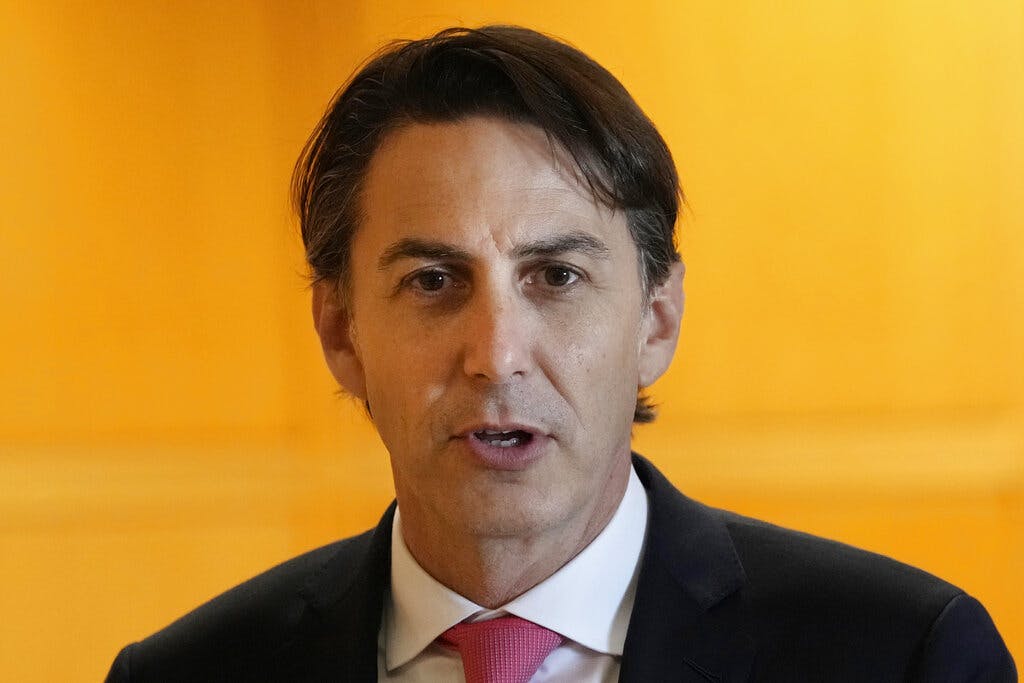Major Debate Erupts in Israel Over Big Gas Deal With Hezbollah
Prime Minister Lapid faces criticism over American-brokered deal that could give Qana field to Lebanon.

On the eve of Israel’s upcoming election, the country is abuzz with a major debate over Prime Minister Lapid’s plan to sign an American-brokered deal with the Iran-backed, Hezbollah-dominated failed state of Lebanon.
The full details of the deal are yet to be disclosed. Yet, following background press briefings, the outlines are widely known: A potentially-rich gas field known as Qana, which was formerly in dispute between the two countries, will be declared fully Lebanese.
In return, a French company, Total, which would soon start exploring gas at Qana, would compensate Israel for the loss of territory. Also, Hezbollah would drop its threats to bomb a nearby Israeli gas field, Karish, or shark, which Israel has long said was never in contention.
Mr. Lapid is defending the deal while his chief political rival, a former prime minister, Benjamin Netanyahu, is accusing Mr. Lapid of capitulating to threats and ceding a potentially lucrative Israeli asset to its mortal enemy, Hezbollah.
The leader of Hezbollah, Hassan Nasrallah, who had for months threatened to attack Israel’s gas fields, said the deal — negotiated by President Biden’s energy envoy Amos Hochstein — opens up “new and promising horizons.” Yet some Lebanese politicians have second thoughts about such details as whether they would be forced to shake hands with Israeli officials.
“I am deeply troubled that Biden officials pressured our Israeli allies to hand over their territory to the Iran-controlled terrorist group Hezbollah,” Senator Cruz tweeted, adding, “Another topic for the next Republican Congress to investigate.”
“Par for the course,” shot back Senator Murphy, a Connecticut Democrat who added that Mr. Cruz’s accusation “is made up out of thin air. No one pressured Israel to do anything. The Israeli government wants this deal because it’s good for Israeli security.”
In reality, Mr. Lapid’s cabinet is yet to approve the Hochstein agreement, so what the Israeli “government” wants remains to be seen. For now, most Israelis are in the dark about the deal’s fine print.
“There is no legal obligation to bring the deal to the approval of the government and/or the Knesset, but it is certainly appropriate and correct to present the agreement to the Knesset, and to hold a discussion about it in the cabinet,” a dovish former Israeli peace negotiator, Gilead Sher, writes, citing a host of past agreements Israel had made with Palestinian and Arab countries that were approved only after such a procedure.
The Hochstein deal attempts to untangle the ever-elusive question of where the border between Israel and Lebanon lies. American and French diplomats, the United Nations, and a host of well-wishers have tried for decades to contend with Lebanon’s ever-changing positions.
Lebanon, as most of its citizens would concede, is a failed state. The only body that still functions, albeit violently and chaotically, is the Tehran-backed Hezbollah, which tops American and European terrorist lists.
In 2011, Israel registered with the United Nations a line in the Mediterranean that it contended marked the border of its economic zone. Since then, Beirut countered at least three times with demands to extend Lebanon’s sovereign waters. Each time, it pushed its demand further south into areas Israel sees as its own.
At the heart of these increased demands was Israel’s success in exploring rich gas fields with the potential of enormous profits. Finalizing explorations in its Karish field, the Israeli government had long planned to start producing gas there last month.
In June, however, Hezbollah launched killer drones toward Karish. Although the sortie was intercepted by the Israeli air force, Hezbollah’s aggression made Mr. Lapid and the main energy company involved in the gas field exploration, the London-based Energean, reconsider.
While Mr. Hochstein shuttled between Beirut and Jerusalem, Mr. Lapid insisted that the Karish field was not in contention. Rather, the debate was over Qana, another field with potential for gas production. In the past, Israel had claimed 40 percent of that area. Under the deal Mr. Hochstein negotiated, Lebanon would own all of it.
Under the new deal “Israel receives 100 percent of its security needs, 100 percent of the Karish gas field, and even some of the profits of the Lebanese field,” Mr. Lapid wrote in a tweet after Mr. Netanyahu attacked him for ceding territory to Hezbollah.
Even his most avid supporters noticed that in defending the deal Mr. Lapid claimed to have won the right to the Karish field, which he formerly said was not up for negotiation.
Yet, his compromise is a tried and true tactic employed by many Israeli leaders in the past — including Mr. Netanyahu: Mr. Lapid is making a major concession in order to avert, albeit temporarily, the threat of Hezbollah aggression.
No one in Beirut, or anywhere else, can guarantee that potential profits from the Qana gas field “will not disappear into the abyss of corruption that has characterized all state revenues and the banking sector in Lebanon’s recent history,” a Trump administration Lebanon negotiator, David Schenker, told the Times of Israel.
The most likely recipient of the gas windfall would be Hezbollah. In the future, these profits could prove detrimental to Israel’s security. For now, though, that can has been kicked down the road.

